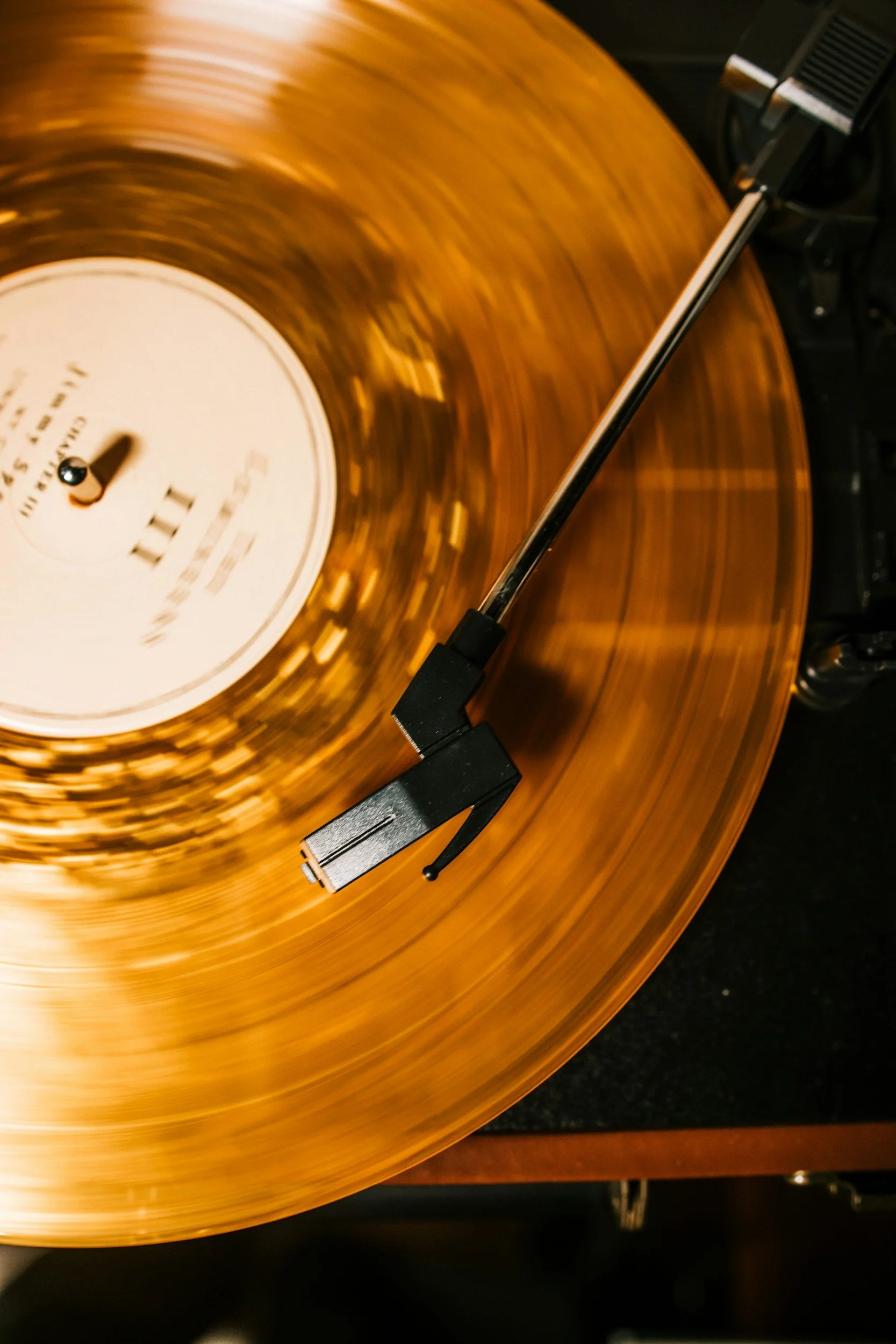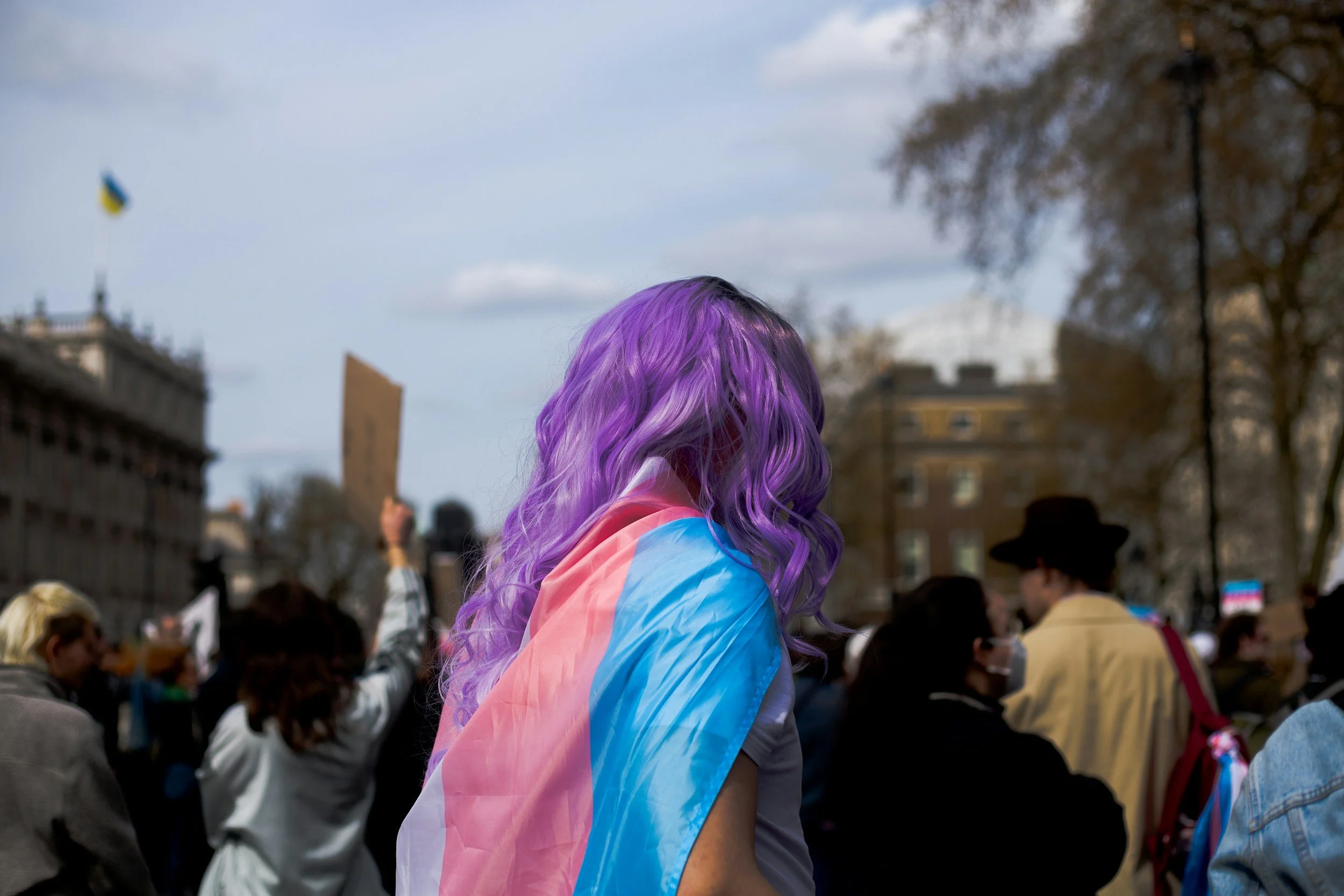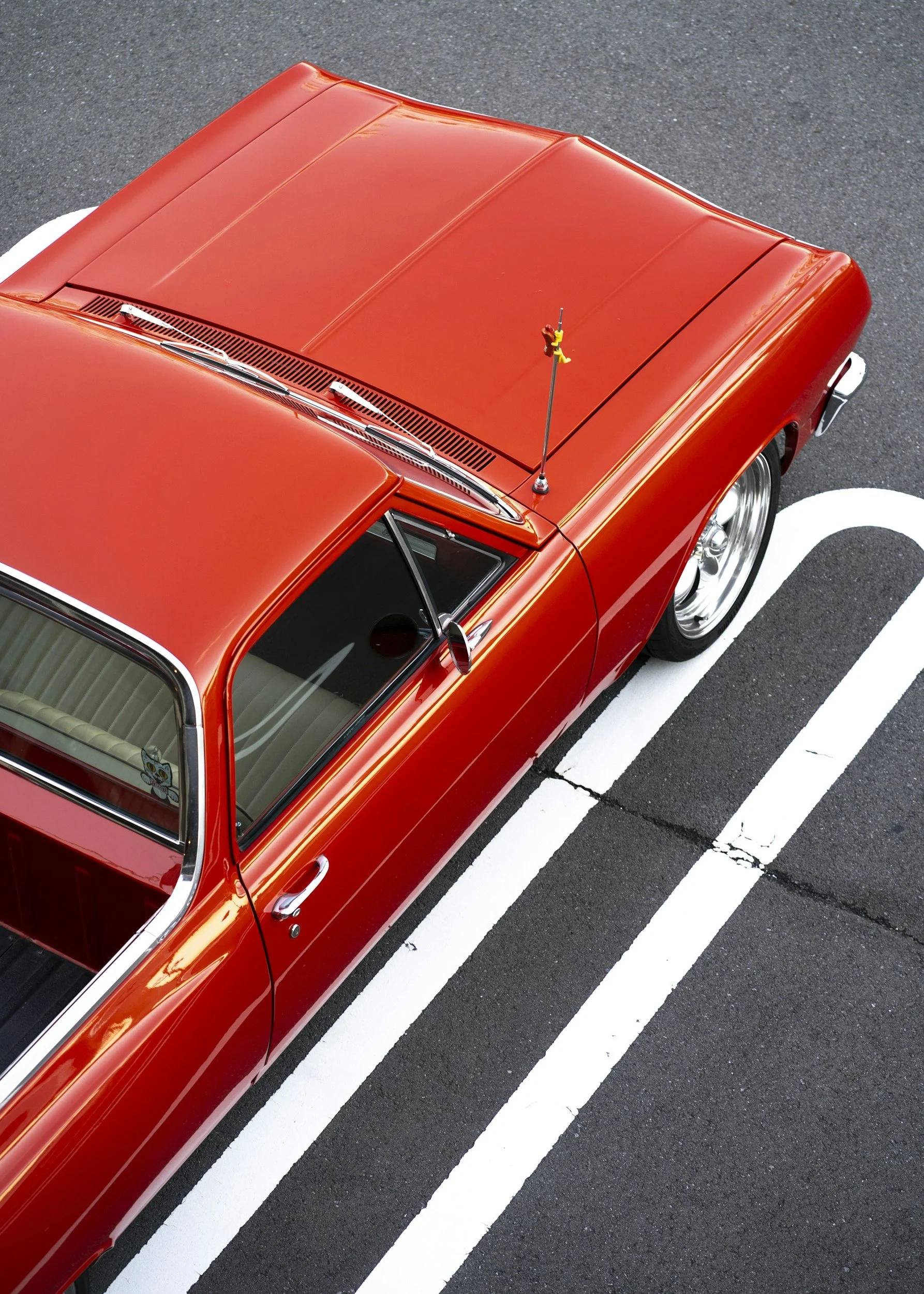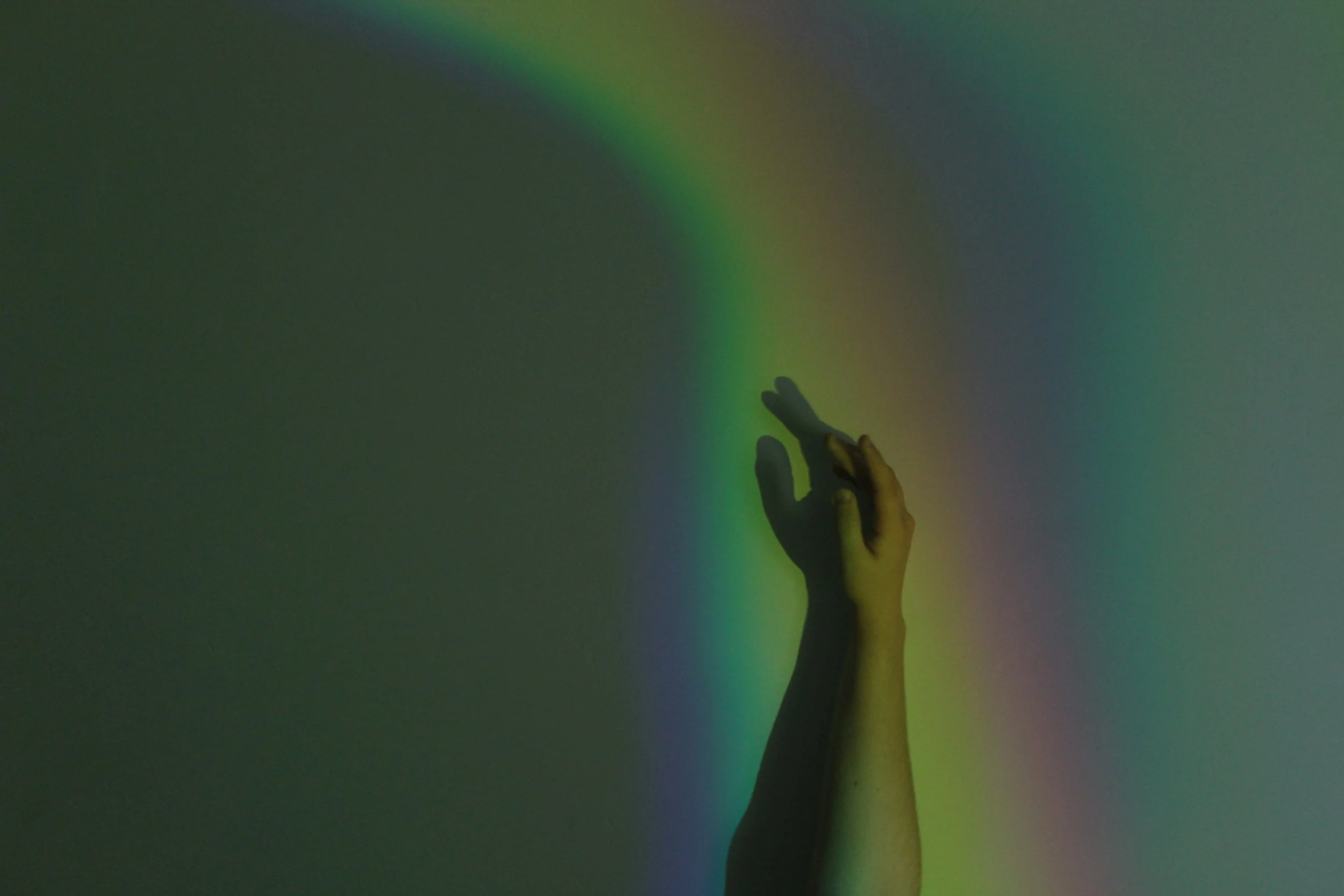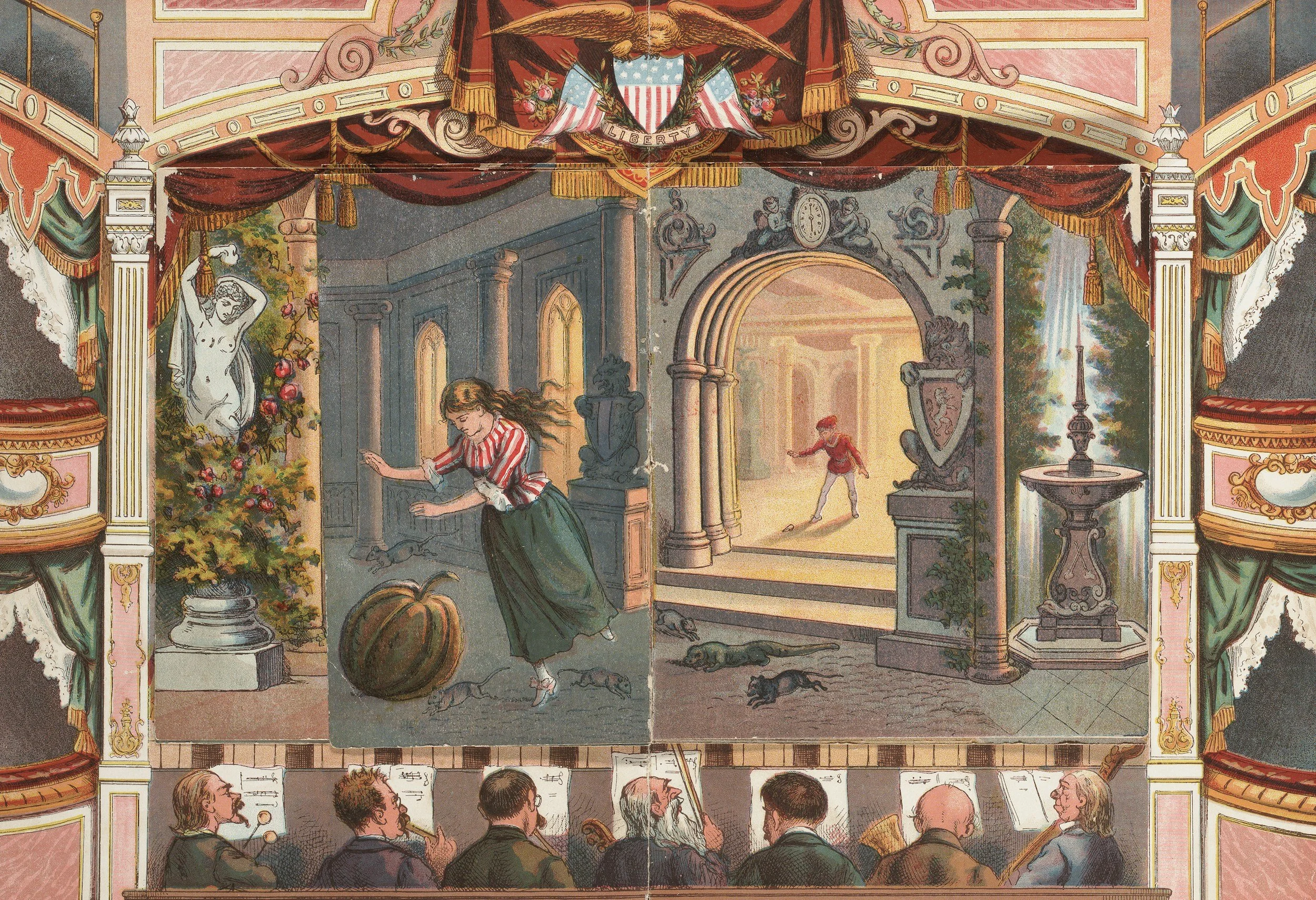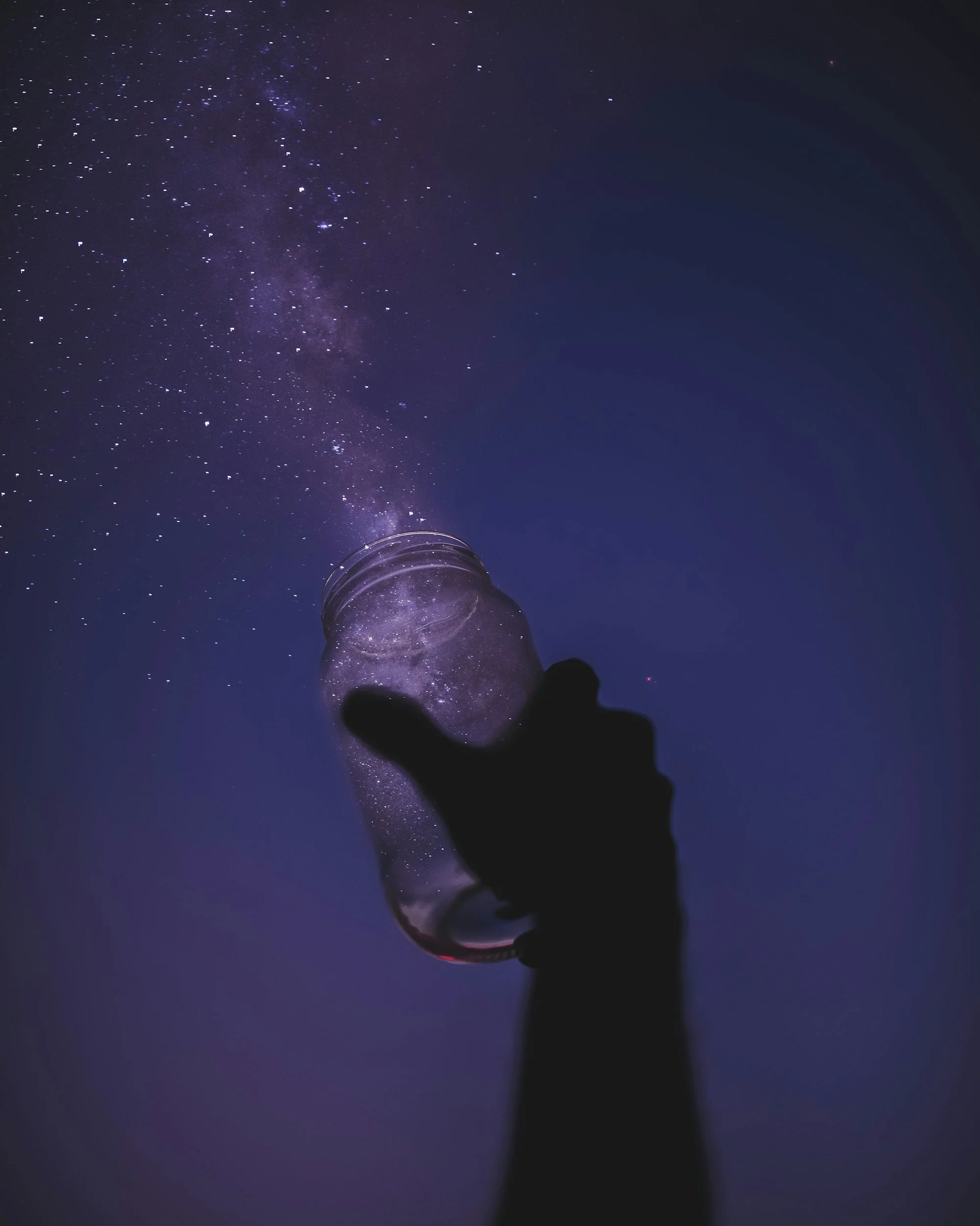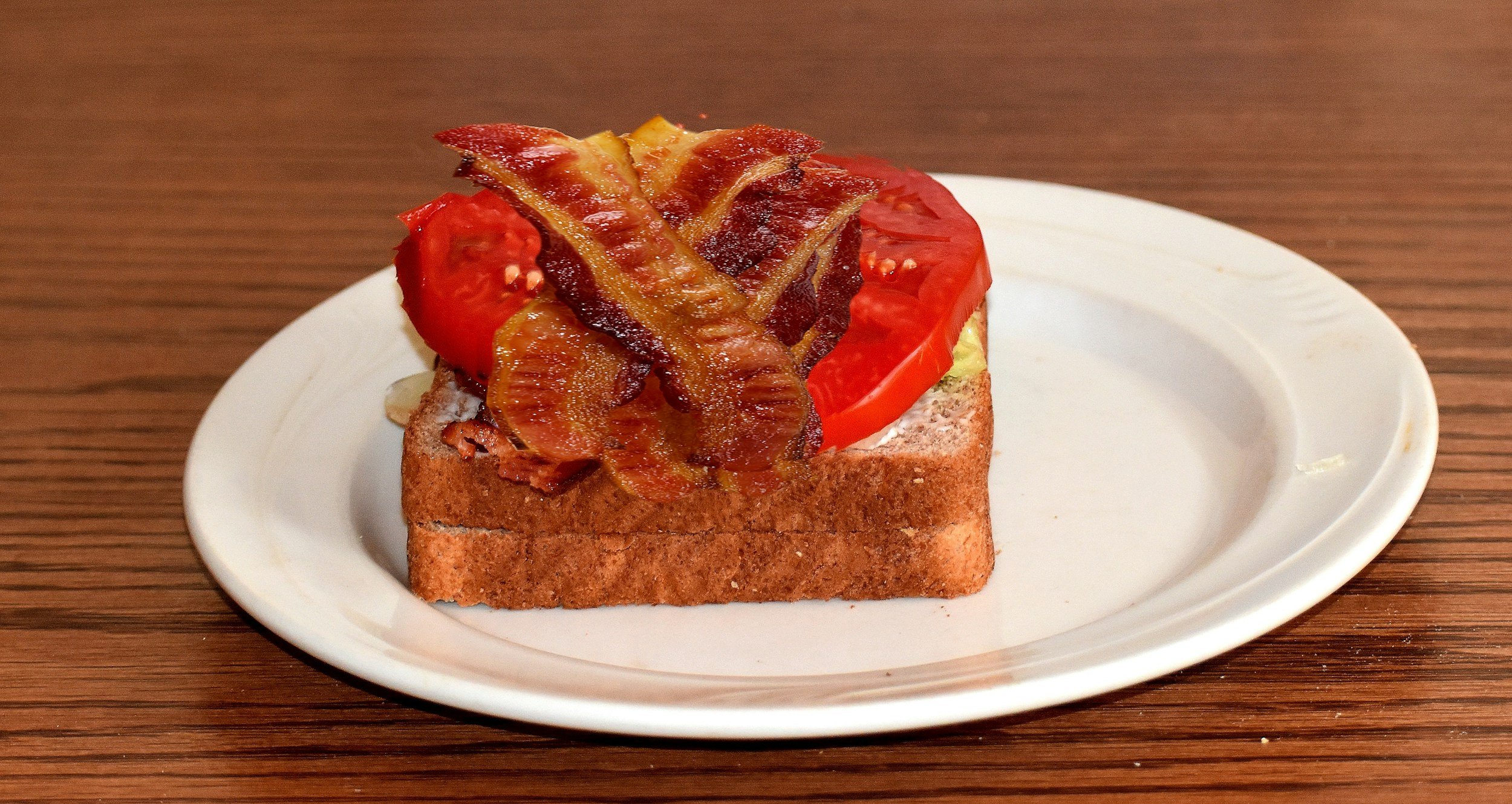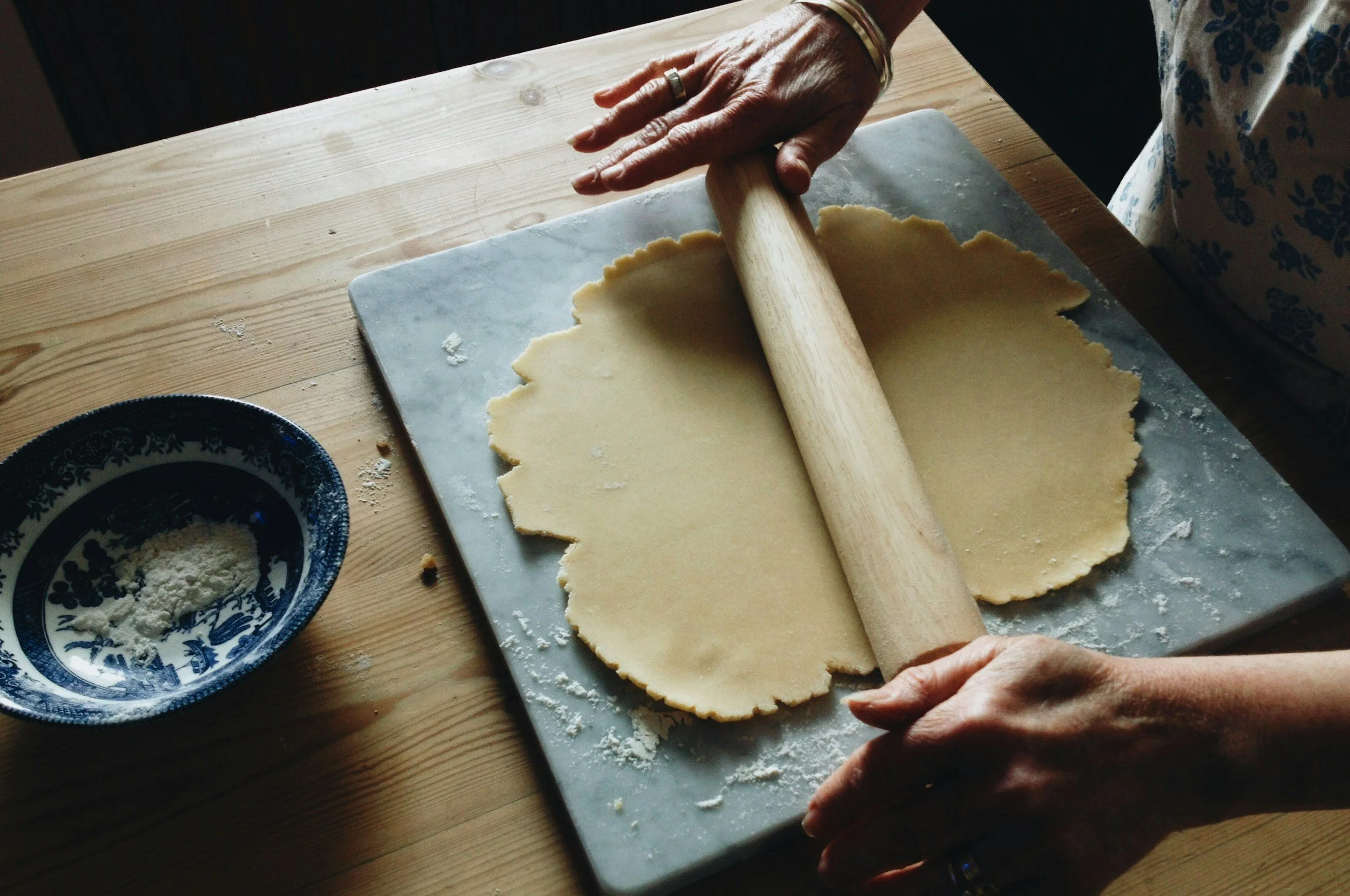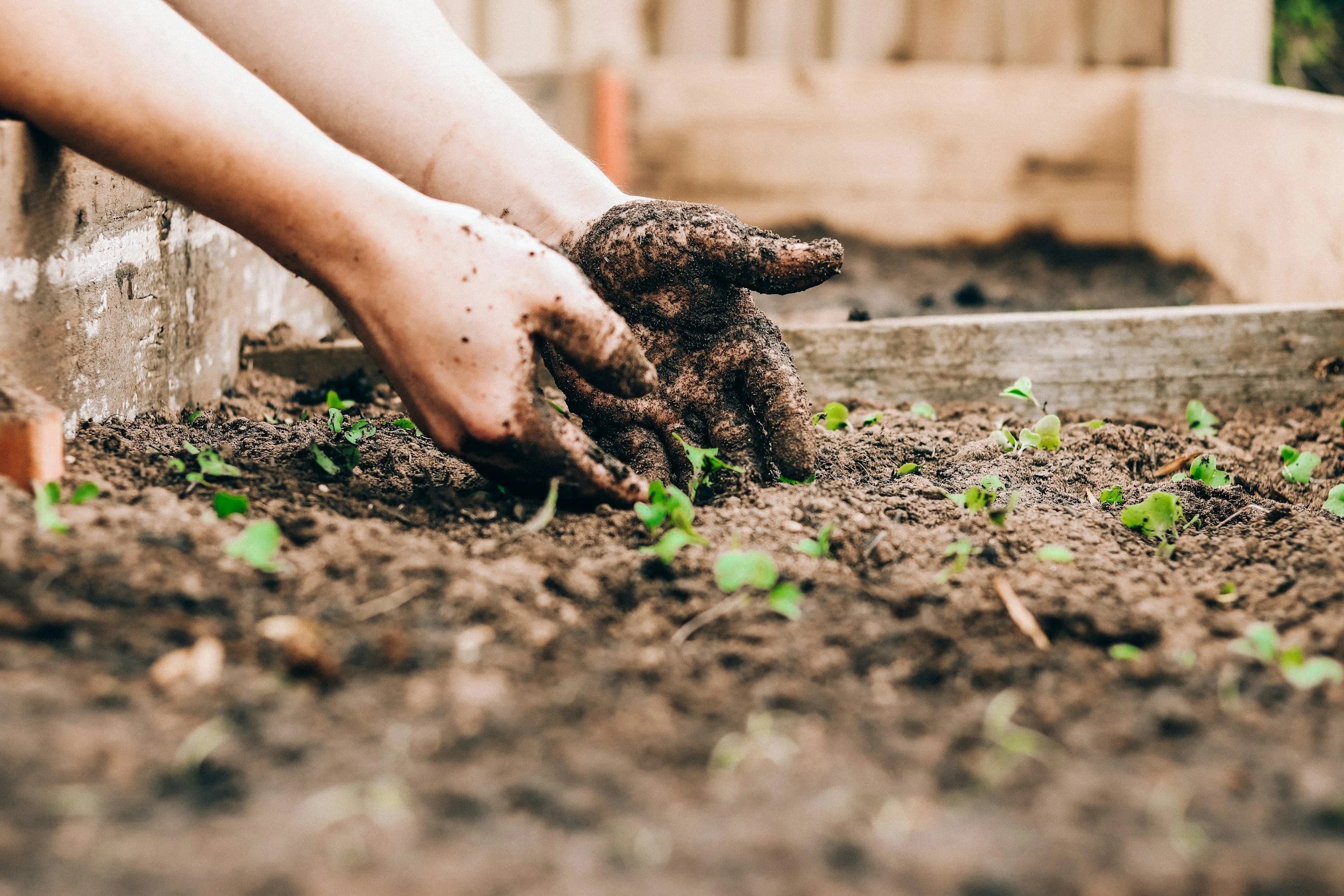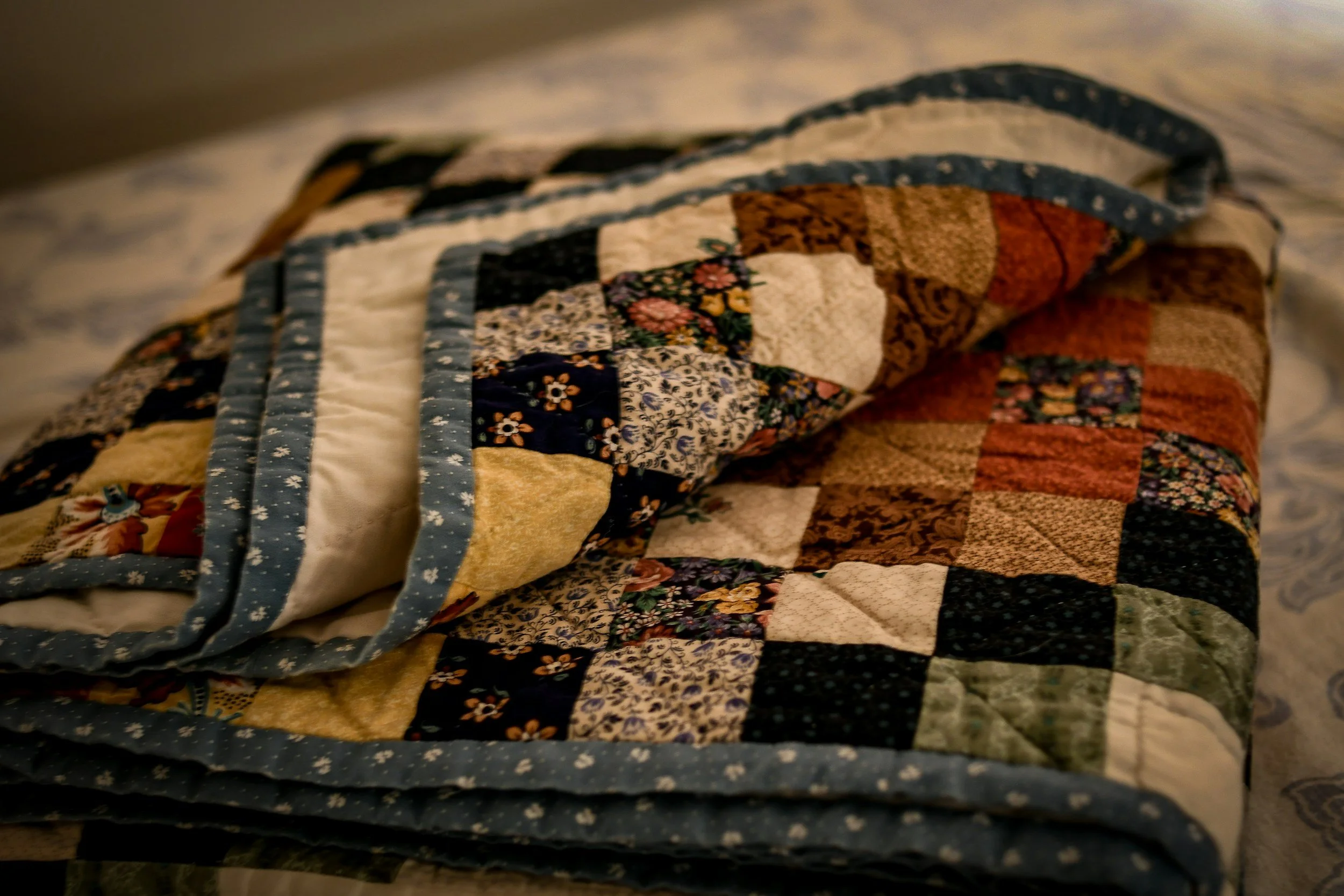Glass Half Full
We’re sitting in a sterile room. Cold air is streaming from above and ruffling a stapled medical resources page tacked to the wall. It’s filled with tiny, almost illegible print and endless lines of phone numbers. Its intention is to let the occupants of this claustrophobic room know that ‘help is available,’ but even with this never-ending list, I feel completely overwhelmed. Like no amount of resources can help me.
The doctor comes in and gets straight to the point. No pleasantries. She flips through the chart and goes through his health history.
Smoker. Diabetes. A-fib. Kidney failure. Congestive heart failure. Cancer.
I am familiar with each diagnosis, as some date back to my childhood, but it’s still sobering to hear out loud. Probably because my dad spent our entire lives minimizing, and more often, avoiding his problems.
“Do you have an advanced directive?” The new primary care doctor asks my ticking time bomb father.
My dad shifts in his seat. This is the second time I’ve been a witness to this conversation since moving him into my home, and I recognize his discomfort. The first was in the ICU a month earlier, the morning his heart stopped. He was lucky—if that’s the right word—because he was already in the hospital due to complications with his recent diagnosis of esophageal cancer. If he had been at home, he would have been dead. Sometimes I wonder, knowing what I know now— knowing what we would eventually go through together—if that would have been preferred.
After he was revived with CPR, a pacemaker was put in his chest. One more life-saving tool to keep my dad alive. A week later, we would add a feeding tube to the list.
After his ‘heart pause’—that’s what they called it, a pause—the palliative care doctor paid him a visit based on my request. I knew my dad would be uncomfortable with the conversation, but eighteen months earlier, I had collected the remains of my thirty-five-year-old husband and didn’t have the patience to tip-toe around the feelings of my rapidly declining father. I needed a plan.
The palliative care doctor asked about an advanced directive and my dad, like an indignant child, asked him to leave.
“Maybe now is not a good time,” the palliative care doctor whispered to me outside my dad’s curtain. Even he wanted to avoid the tough conversation.
“His. Heart. Just. Stopped.” I responded through gritted teeth. “When would a better time be?”
Talking about death isn’t just hard for the dying. It’s hard for everyone, including the doctors giving the life sentence. Even with my husband, who died one hundred days after his terminal diagnosis, the doctors were always searching, searching, searching for the next miracle cure. Not once did anyone directly tell us he was dying. We live in a glass-half-full society that requires us to keep fighting, to keep hoping, and to keep denying the truth that we will, in fact, one day die. Some of us sooner than we want.
My dad was the epitome of glass half full, despite—or maybe because of—his difficult life. He was the son of an abusive alcoholic, the ex-husband of not one, but two women who wanted more than he could give, and the father of three children he barely saw. But you’d never know any of that when you met him. He was always full of smiles and warmth and positivity. It’s what made him so good at his job as a used car salesman. He wasn’t lying about the condition of the car. He believed the car could be fixed. He simply overlooked the severity of problems.
So it’s no surprise my dad refused to talk about death. I never understood this because he had been on the verge of it for as long as I could remember. He’d been struck by lightning, twice (or so the story goes). He was a pack-a-day smoker his entire life. He survived every ailment under the sun, including kidney failure, septic shock, a burst appendix, and blood poisoning. And now, a few weeks after his cancer diagnosis, he survived his heart stopping. For all the times he rubbed shoulders with death, my dad never learned how to be comfortable with his own mortality. He was, in his mind, immortal. And I played along—until now.
I used to be like my dad, positive and avoidant. Like him, I was a people-pleaser who rarely talked about herself with any sort of depth. When you wade in shallow waters, it’s harder to drown. And if I did flounder in the deep end, I’d convince you I was fine, while under the surface, my legs kicked desperately to keep me afloat.
But after my own cancer diagnosis at twenty-eight years old, I could no longer keep up the facade while silently gasping for air. When people asked how I was, I didn’t find the silver lining or claim my diagnosis was a gift. Instead, I told them the truth. And when, five years later, my husband received a cancer diagnosis that would take his life mere months later, any pretense that we are guaranteed a long life was shattered.
The words from my late husband, “we’re all terminal,” echoed through me as I moved through the world with a new sense of urgency.
I unapologetically talked about death. Just not to my dad. We didn’t have that kind of relationship. We stayed happy, mostly in surface level always.
Even as my dad attempted to leave the hospital to sneak in a cigarette: “Don’t worry baby, it’s all fine.”
The older I got—and the more of life I experienced—I realized that the ‘fun’ weekends of my childhood, were a band-aid for actual parenting. He rarely showed up for basketball games or helped pay for school. Never asked if I was dating anyone or who I wanted to be when I grew up. Packing lunches, checking homework—these were absent from his job description. He was the typical divorced dad who thought showing up as a parent meant having fun and not rocking the boat.
Which for a child, is fun, until it isn’t.
Like the time my dad took us to Atlantic City for the weekend. I struggle to remember how old we were, but my little sister was young enough to still be in a car seat. I remember the excitement that exuded from my dad, as he sang along to the oldies station on the radio. I remember the salty boardwalk fries, dipped in vinegar. And I remember the panicked look on my mom’s face when we were dropped off five hours late the next day, without a word to where we were.
Apparently, my dad drove us two hundred miles to an out-of-state casino without bothering to call my mom.
“Lisa, it’s fine! The kids are fine!” he yelled from the driveway.
Seeing the fury in my mom’s eyes, I stepped in, my little hand tugging at the edge of my mom’s shirt. “We’re fine, mom. Don’t worry.”
Growing up, he was the typical every-other-weekend dad, spoiling us with late bedtimes, too much sugar, and R-rated movies my mom would never let us watch. He told us tall tales of his life that we rarely believed, but loved hearing anyway. He cared for us, but didn’t always care for our best interests.
When I was diagnosed with cancer, he never showed up to visit me in the hospital or comfort me while in treatment. When he called to check in during that time, he asked if I watched the football game or saw the latest blockbuster movie. The rare times he asked how I was doing, I always made sure to say I was fine. The hard part of parenting just wasn’t his area of expertise, and who was I to worry him?
With the exception of our mutual desire to be perceived as ‘fine,’ my dad and I seemed to be on opposite ends of a teetering see-saw. He’d go one way, and I’d go the other.
I was a serious child—quiet and stoic. My dad, a natural jokester, would drive-by-prank strangers from his car. I was an introvert, he was an extrovert. I read books, he watched TV. I voted blue (and in every single local election), he voted red (if at all).
And now, as an adult, I confront and he avoids.
I opened the curtain to my smiling father who looked at me like he was waking up from a restful nap, not coming back from the dead.
“Dad, you have to do this,” I said softly, between gritted teeth, like a mother speaking to the child who refuses to put on his shoes. “The advanced directive is for me,” I impatiently pleaded. “I don’t know what you would want if another emergency were to happen.” Of course, there would be another emergency. With my dad, there’s always another emergency.
“We can talk about it later, sweetie,” he evaded, kicking away the metaphorical shoes.
Now, back in this new primary care office, my dad calls the doctor ‘Mrs.’ An innocent mistake, that makes me cringe anyway. Feeling embarrassed, I correct him, unable—even in this moment of naked vulnerability—to keep my mouth shut. She again asks about the advanced directive.
My dad is silent, looking at the stapled packet of resources tacked to the wall.
“He doesn’t have one,” I jump in, avoiding my dad’s eyes. “But we want one,” I say, taking the form. He’s only been in my care a few weeks, but our roles are already shifting. As his caregiver, I am more bold and quick to speak than I ever was as his people-pleasing child.
The truth is, I am in no condition to care for my dad. I just moved to a tiny cabin on a lake, hours away from anyone I know. I left my friends and the Detroit home I shared with my husband to heal from (or more accurately, run away from) his death the year before. I needed a space that wasn’t full of memories, good or bad. I needed a place just for me.
And then my dad got sick.
Over the summer, he had been in and out of the hospital with flu-like symptoms. “It’s nothing,” he repeatedly told my siblings and I over the phone. We should have known then that it wasn’t nothing, but my dad spent our entire lives both minimizing, and more often, avoiding problems. And we spent our entire lives believing him.
When my dad told me, through tears, it was cancer, I booked a flight back to Virginia the next day. It was a rare time I heard him cry.
Admittedly, I made the offer for him to move in with me without expecting him to say yes. My dad and I hadn’t lived together since I was five, when he and my mom got divorced, and I moved out of state as soon as I finished college. The truth is, we barely knew each other.
But I knew firsthand the difficulties of navigating a cancer diagnosis. And more than that, based on his health, I thought he would die in the coming months, and I couldn’t fathom him dying alone. My dad was stubborn and proud and always refused help (or even admitting he needed help), so I was sure he would refuse the offer. I was unprepared when he agreed.
This will be fine, I told myself. I justified that this time would allow us to grow our relationship beyond shallow levels of fun. I would learn about his Native American roots and his childhood and why he was so damn positive all the time. I would break through and we would finally go deep.
I expected too much. A terminal diagnosis doesn’t automatically change a person who doesn’t have any desire to change.
Every day since my dad agreed to live with me, a series of questions rolled through my mind:
How do I handle his failing physical state, his possible failing mental and emotional state?
What happens when my proud and stubborn dad completely loses his independence?
How will I handle the daily triggers from reliving a terminal cancer diagnosis?
How will I survive the trauma of another man I love potentially dying in my home?
Will I have to move again?
How can I care for someone who is dying but refuses to be upfront about their pain, their symptoms, their feelings?
And the single question that played on a loop, over and over and over again: What have I done? What have I done? What have I done?
Despite our best intentions, living together only highlighted our differences, intensifying my resentments. The fact that he never took care of himself or me, and now I was sacrificing everything to reciprocate, felt like an uneven deal. I lived with that truth and also struggled with the guilt of that truth, alone, in the quiet shadows of my home.
Every time I stepped into the oncology ward of the local hospital, my heart lept from the memories of the nightmares I had experienced only eighteen months before.
Pulmonary embolism. Mini-stroke. Fractured spine. Progression of disease. Reminders of my husband’s death echoing in my head.
I silently carried both the grief of losing my husband and the anticipatory grief of losing my dad. I never talked about my experience caring for Brad, and my dad never asked. I saw how cancer destroyed Brad, one organ, one bone, one brain cell, at a time. I remembered the intimacy required in the end.
Maybe it was better my dad didn’t know.
“I’m not fine,” reverberated in my mind, but I didn’t dare speak it out loud. Not to my dad.
When people found out I moved my dad in with me, they told me I was doing God’s work. They called me an ’angel.’ This only added to my guilt. Would an angel be so fucking angry?
And I was angry all the time. I was angry that my dad was diagnosed, yes. But more shamefully, I was angry at my dad for getting sick and upending my life. I was angry at myself for taking on such a task, even though those around me warned me against it. I was angry at my dad for surviving when my husband did not. And I was angry at my husband for dying and leaving me to pick up the pieces of this life alone.
I was also angry about how drastically my daily life shifted. Now having to wake up at 4:30am to shovel the driveway so I could get my dad to dialysis on time. Having to fill feeding tube bags and measure insulin vials and separate pills. Having to clean blood and vomit and urine from carpets and sinks and furniture. Happy hours at the bars, trips to the beach, even late nights in the office, like my thirty-something peers, were replaced with the lonely reality of caring for another dying man I loved.
Of course I never shared my fears or my feelings with my dad—we just didn’t have that kind of relationship. Instead, I hid my anger and resentment. Because my dad’s biggest fear was feeling like a burden, and mine was him finding out that he, in fact, was one.
Instead, we both pretended we were fine.
In many cultures, it is inherent to care for our elders. But what if that elder rarely cared for you? How much do we owe the people who are responsible for our birth but not our life?
Yet, here I am, sitting across from one of many new doctors, overseeing not just my dad’s life, but his impending death; a death he refuses to acknowledge as a possibility.
Driving home from the appointment—my mind is racing a million miles a minute, thinking about all that is to come—the decline of his body, the procedures, the questions I don’t have answers to. I am terrified of him dying and also terrified of him—of us—living, like this, for years. I remind myself of the gift I am giving my dad. The time, the space, the connection. With my husband dead and no kids of our own, will anyone return the favor and give me this gift? Or will I die alone?
My mind is spiraling into a future world of unknowns.
I look over at my dad, his eyes fixated on the passing lake. He rolls his window down, turns up the music, and closes his eyes, feeling the wind in his face. A slight smile comes over him as he sings the lyrics to Eric Clapton. I’m annoyed at how oblivious he can be. Does he not know how hard this is for me? Why is it not harder for him? Is he not worried about everything to come?
But then I soften, hearing his melodic hum get picked up by the breeze and float away. And I join in, letting my current worries drift away too. Just for a moment.
Right now, we are okay.
It would be many months before my dad finally gave in and signed the advanced directive. After the chemo and radiation failed and all that was left was comfort care. My dad’s death was imminent. I knew it and the doctors knew it and maybe even my dad knew it (although if he did, he feigned ignorance). We never did talk about it. Even at the end, he refused to check the ‘do not resuscitate’ box, instead opting to save his unsavable life ‘under any means necessary.’
Maybe he thought he was protecting me by denying his reality. Maybe he was protecting himself. I followed his lead in not asking, so I’ll never know.
We never verbally reconciled our relationship. We didn’t have any grand gestures or end-of-the-movie moments. But we had a quiet understanding. An undercurrent of love. My dad was my dad and I was me and in our flawed relationship there was respect.
His final eighteen months were spent on the lakes of Northern Michigan—first with me and later at a nursing home. His last months weren’t easy, but he died in the care of hospice and his favorite nurse—with his three children, two grandchildren, and one ex-wife nearby—without the need of his advanced directive.
He never did admit he was dying.to me or himself. But by that point I knew, even death itself couldn’t change my dad.
And in the end, that was just fine.
-Dana Frost
Dana Frost lives along the shores of Lake Michigan in Traverse City. She is the Founder of the Forced Joy Project, an organization that provides grief support, and is the Creator of Book of Stories, memorial books that capture the stories of loved ones. She regularly writes about her experiences as a widow, a caregiver, and a cancer survivor on her substack, I’m Fine (& Other Lies).

